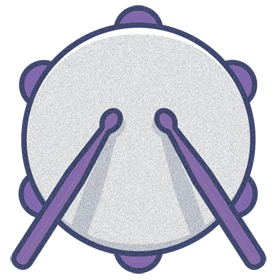Discover your intellectual strengths
Impulsivity, a fascinating blend of instinct, emotion, and reaction, often shapes our most authentic moments and decisions. Through the words of psychologists, philosophers, and insightful observers, this collection sheds light on the allure of spontaneity and the consequences, both joyous and perilous, of acting on impulse. These quotations dive deep into the nuances of immediate reactions, urging readers to reflect on their own moments of spontaneity, the reasons behind them, and the ripples they create in the vast ocean of life. A treasure trove for introspection, this compilation is an invitation to ponder the intricate dance of instinct and choice.

"One is not idle because one is absorbed. There is both visible and invisible labor. To contemplate is to toil, to think is to do. The crossed arms work, the clasped hands act. The eyes upturned to Heaven are an act of creation." - Victor Hugo
Victor Hugo, a renowned French writer, emphasizes the value and effort behind introspection and contemplation. He argues that even if someone appears physically idle, they might be deeply engrossed in intellectual or emotional labor.
Hugo's perspective suggests that intelligence is multifaceted and not always manifested in overt actions. Deliberate contemplation, introspection, and thought processes are integral to the deeper dimensions of intelligence.
Introspection, contemplation, and deep thinking. The ability to be absorbed in one's thoughts, reflecting, and processing information internally.
While AI can process vast amounts of data rapidly, the depth of contemplation and introspection that humans practice is challenging to replicate. This underscores the difference between mere data processing (AI) and deep introspective thinking (human intelligence).

"The first and greatest victory is to conquer self." - Plato
Plato, the ancient Greek philosopher, believed in the importance of self-mastery. This quote emphasizes the idea that understanding and gaining control over one's impulses, desires, and emotions is a profound achievement.
Plato's statement highlights the significance of emotional and self-regulation as components of intelligence. Beyond cognitive capacities, true intelligence involves understanding oneself and exhibiting self-control.
Self-regulation, emotional intelligence, and self-awareness. Mastery over one's emotions and impulses.
While AI systems can be programmed to follow certain protocols and avoid specific behaviors, the concept of self-mastery does not apply to them. AI doesn't have desires, emotions, or impulses to control, emphasizing the unique human challenge of self-regulation.

"I can resist everything except temptation." - Oscar Wilde
Oscar Wilde, known for his wit and playfulness, highlights the human struggle with impulsivity. This quote humorously underscores the challenge many face in resisting temptations, even when they know better.
Wilde's quip provides a glimpse into the ongoing tension between cognition (knowing what's right) and impulse (giving in to temptation). Intelligence isn't merely about knowledge but also about the capacity to act on that knowledge, especially in the face of temptation.
Impulse control, decision-making, and self-awareness. The ability to recognize temptations and choose how to respond to them.
AI does not experience temptation in the human sense, as it operates based on algorithms and lacks desires. However, AI systems can be designed to prioritize specific actions or solutions over others, similar to how humans might prioritize long-term rewards over immediate gratification. The difference lies in the absence of emotional conflict in AI decisions.


